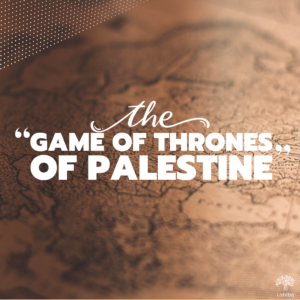By Ekaterina Kuleshina
The Historical Context of the Displacement
Since the 1948 Nakba, when over 700,000 Palestinians were forcibly displaced during the Arab-Israeli War, the issue of Palestinian refugees has remained unresolved, with over 5 million still living in camps across the Middle East.
Following October 7th, 2023, an additional wave of displacement occurred, further exacerbating the refugee crisis. Hundreds of families were forced to flee their homes, seeking refuge in neighbouring communities and makeshift shelters. This escalation only compounded the challenges faced by Palestinian refugees, adding to their already dire circumstances.
Challenges faced by Palestinian Refugees
Not only did the Nakba result in a displacement, but also in the loss of homes, lands, and livelihoods. Today, Palestinian refugees are dispersed across the region, with the largest population residing in neighbouring countries such as Jordan, Lebanon, Turkey and Syria. Many continue to live in refugee camps, where overcrowding, poverty, and limited access to basic services persist.
The Unfulfilled Right of Return
Despite international laws affirming their right of return, the majority of Palestinian refugees remain unable to return to their homes and lands in what is now unlawfully Israel. This denial of rights has resulted in generations of statelessness, and a persistent longing for justice and restitution.
Obstacles to the enforcement of the right of return are numerous. Israel’s refusal to acknowledge it, citing concerns over maintaining a Jewish demographic majority, has been a significant barrier. Additionally, the ongoing Israeli occupation of Palestinian territories, including the West Bank and Gaza Strip, further complicates the prospects for a just resolution to the refugee issue.
The situation of Palestinian refugees is exacerbated by humanitarian crises, such as the ongoing conflict in Syria, which has led to further displacement and suffering of Palestinian refugees residing in the country. In Lebanon, Palestinian refugees face legal and socioeconomic discrimination, including restrictions on employment and property ownership.
Advocacy and Resilience
Despite these challenges, Palestinian refugees and their supporters continue to advocate for their rights and demand a just solution to the refugee issue. Grassroots movements, international solidarity campaigns, and diplomatic efforts seek to raise awareness and pressure governments to address the root causes of displacement and injustice.
As the international community grapples with the complexities of the Israeli-Palestinian conflict, the plight of Palestinian refugees must remain a central concern. Any lasting resolution to the conflict must address the rights and needs of Palestinian refugees, including their right to return, following international law and humanitarian principles.
In the face of adversity, Palestinian refugees remain resilient, holding onto their identity, history, and dreams of return. It is incumbent upon the international community to support their struggle for justice and dignity and to work towards a future where all Palestinians can live in peace and freedom, with their rights fully realised.




